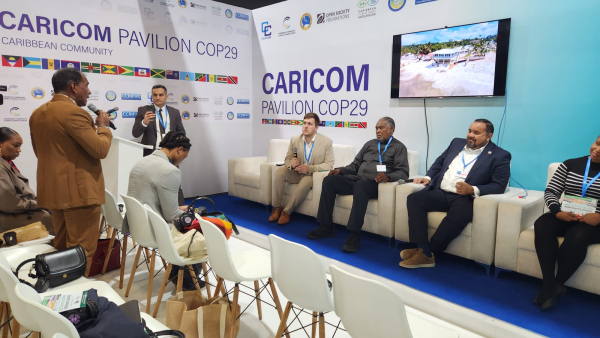 Dutch Special Envoy Edison Rijna, former governor of Bonaire, is being deployed by the Dutch government to the Global Sustainable Island Summit (GSIS) in May 2025 in St. Kitts and Nevis. Framed as an advocate for increased funding to the Forum for Subnational Island Jurisdictions (SNIJs), Rijna’s real function is to advance Dutch strategic interests. His presence risks misleading CARICOM partners, as he represents the colonial state, not the voices or needs of the people in non-sovereign island territories.
Dutch Special Envoy Edison Rijna, former governor of Bonaire, is being deployed by the Dutch government to the Global Sustainable Island Summit (GSIS) in May 2025 in St. Kitts and Nevis. Framed as an advocate for increased funding to the Forum for Subnational Island Jurisdictions (SNIJs), Rijna’s real function is to advance Dutch strategic interests. His presence risks misleading CARICOM partners, as he represents the colonial state, not the voices or needs of the people in non-sovereign island territories.
It’s crucial to clarify the actions of the so-called Dutch Special Envoy engaging with CARICOM and St. Kitts and Nevis. While he presents himself as a representative of Bonaire, he truly serves Dutch interests, not those of Bonaire’s people. He is working on behalf of the Netherlands, not reflecting the struggles or voices of the local population.
The narrative being pushed is misleading and deceptive. The envoy is attempting to secure funding under the guise of representing Bonaire's climate vulnerability and challenges, but these claims are fundamentally false. Bonaire is not located in the hurricane belt, and our island does not suffer from major natural disasters like many other Caribbean nations. While climate change is a global concern, it is not the pressing issue that is currently affecting our people.
The true crisis in Bonaire is not environmental, but a human rights crisis one. The Dutch government imposes high taxes and collects all with zero accountability to the people. Our schools are stripped of cultural identity, forcing native children into a system that ignores and erases their language and rights. Unrestricted migration from the European Netherlands is driving overpopulation on Bonaire, straining the island's infrastructure, resources, and social framework—an undeniable example of modern colonial exploitation.
Healthcare in Bonaire is no longer serving our people—it’s being used as a tool of Dutch colonial control. The forced imposition of Dutch European laws like “euthanasia” violates our moral and cultural values, leaving families traumatized and the elderly afraid to seek care. Since its enforcement, the death rate has doubled, and our native population has plummeted from 80% in 2010 to just ca 30% today. This is not coincidence—it reflects a deliberate policy of displacement and cultural erasure.
It is misleading and harmful for this envoy to present a false narrative to the Caribbean, diverting attention from Bonaire's real struggles and reinforcing Dutch colonial dominance. We urge CARICOM leaders and the government of St. Kitts and Nevis to distinguish between a Dutch envoy pushing for Dutch interests and the true voice of Bonaire’s people, who are fighting for their survival, rights and self-determination.
James Finies, Bonaire Human Rights
Bonaire Human Rights Organization